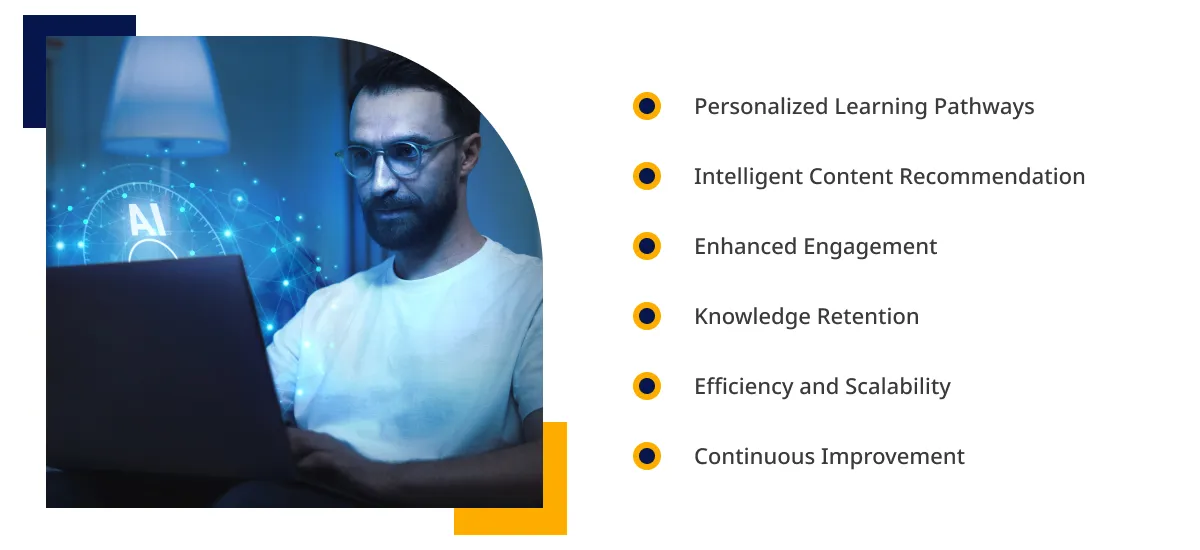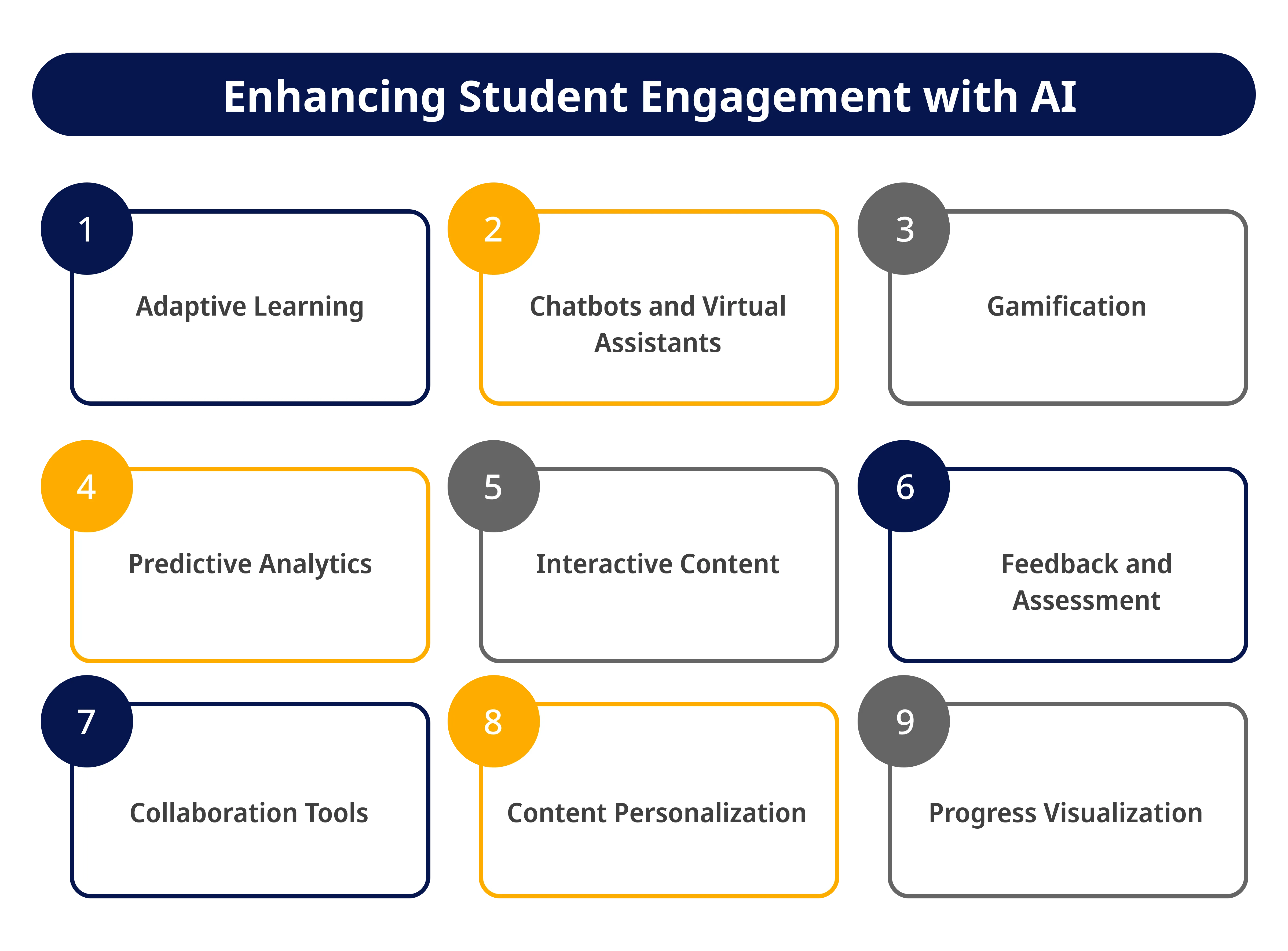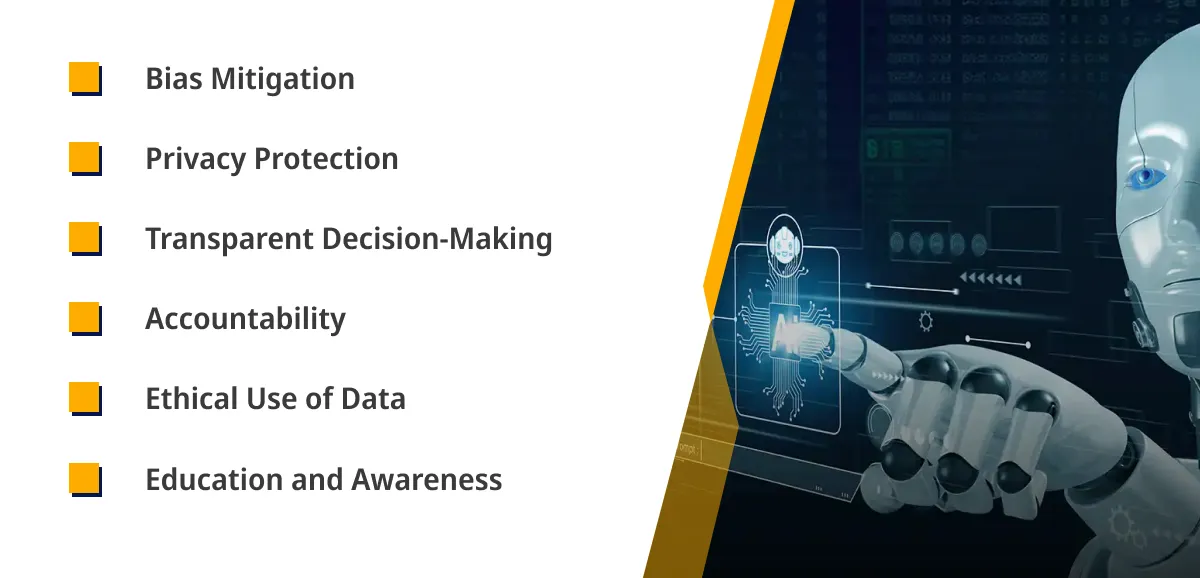Are traditional methods falling short in meeting the demands of modern education? Our AI/ML solutions pave the way for enhanced learning experiences, personalized education, and operational efficiency in the education sector.

Professional, reliable, and results-driven – they delivered exactly what we needed, on time and within budget.
- James
At ValueCoders, we empower the education industry with cutting-edge AI/ML solutions that drive innovation, enhance learning experiences, and streamline operations.
Our AI services for education sector help create personalized learning experiences, adapting content and pace to individual needs.
We help employ AI algorithms to curate and recommend relevant educational resources, ensuring that you have the most valuable materials.
Use AI for predicting student performance and identifying early intervention opportunities.
Streamline the assessment process with our AI/ML solutions for education, including grading, feedback, and analytics.
Optimize admin tasks with Artificial intelligence in education, such as automating registration, scheduling, and resource allocation.
Use AI/ML solutions for education that analyze vast educational datasets for curriculum improvement & resource allocation.
We help support educators and researchers with our AI-driven tools for data analysis, literature reviews, and content generation.
We help develop adaptive eLearning platforms that adjust difficulty levels, content, and learning paths.
We help implement AI-powered chatbots to provide 24/7 student support, answering queries, and offering guidance.
We help optimize resource allocation by using AI and ML development for education to predict resource demand.
Personalize education, boost retention, and improve outcomes with our smart AI solutions.

From startups to enterprises, product companies to digital agencies, and SMEs to governments, we provide advanced custom AI/ML solutions for the education sector. As a leading AI development services provider, our dedicated efforts position us as a market.
We help reduce admin overhead and enhance teaching efficiency with our AI-powered tools.
Partnering with businesses in diverse sectors to unlock new avenues for growth and innovation.
We specialize in engineering custom software that's both stable and secure, using a variety of tech tools.
Dive into bi-weekly sprints and rollouts aligned with project timelines.
Combined team tackles tasks, fulfilling user stories and sprint goals.
Daily check-ins led by the Scrum Master to discuss progress and tackle challenges.
Quality Engineers rigorously test new features, ensuring seamless integration.
Our team keeps the sprint backlog updated, staying on track to meet objectives.
Post-sprint reflections to refine strategies and enhance future sprints.

In the ever-evolving domain of education, the convergence of Artificial Intelligence (AI) and Machine Learning (ML) represents a pivotal force driving transformative change. Its impact on e-learning environments is particularly significant, where traditional educational paradigms intersect with cutting-edge technologies.
A Glimpse into Educational Innovation
Empowering E-learning Companies with AI
Customized Solutions and Scalability
Crafting a Tech-Savvy Learning Future
As we explore the AI/ML landscape in education, our journey will delve deeper into the specific benefits, real-world applications, and future trends that define this exciting intersection of technology and learning.

AI in eLearning is revolutionizing the educational landscape. Educators can create dynamic, personalized learning experiences that cater to each student’s unique needs by incorporating AI solutions for the eLearning industry. Here’s how AI is making an impact:
By adopting AI in eLearning, educational institutions and eLearning companies can provide more effective and engaging learning experiences, ultimately leading to improved educational outcomes.

Creating AI-powered eLearning solutions requires a strategic approach to AI software development for eLearning companies. Here’s a comprehensive overview of the process:
Following these steps in AI software development for eLearning companies, you can build and deploy cutting-edge eLearning solutions that offer personalized, efficient, and engaging learning experiences.

Student engagement is a critical factor in effective education. AI services for eLearning companies can significantly enhance engagement in the following ways:
By incorporating these AI-driven approaches, educational institutions and eLearning companies can boost student engagement, leading to higher satisfaction and better learning outcomes.
AI/ML in education provides valuable data-driven insights for educators, helping them make informed decisions and optimize their teaching strategies:
Educational institutions and eLearning companies can harness AI-driven data insights to enhance the quality of education delivery, improve student outcomes, and provide a more tailored learning experience.

Ethical considerations are paramount when implementing AI/ML in education. As AI solutions become increasingly integrated into the eLearning landscape, addressing ethical concerns is essential:
Addressing these ethical considerations is vital to maintaining trust in AI-powered eLearning environments and ensuring that education remains fair, transparent, and inclusive.
Ans. Clients choose us for our expertise in AI solutions for the eLearning industry, highly customizable services, and a track record of successful AI software development for eLearning companies.
Ans. Yes, our AI software development for eLearning companies is highly customizable to meet your unique requirements and objectives.
Ans. We prioritize ethical AI usage, implement bias mitigation techniques, ensure data privacy compliance, and promote transparency in decision-making within our AI/ML for Education services.
Ans. Absolutely, our AI software development for eLearning companies is highly customizable to meet your specific needs and goals.
Ans. We provide comprehensive support and maintenance services to ensure the continuous improvement and efficiency of your AI-driven eLearning solutions, setting us apart in terms of client satisfaction.
We are grateful for our clients’ trust in us, and we take great pride in delivering quality solutions that exceed their expectations. Here is what some of them have to say about us:

Co-founder, Miracle Choice

Executive Director

Director

Director
Trusted by Startups and Fortune 500 companies
We can handle projects of all complexities.
Startups to Fortune 500, we have worked with all.
Top 1% industry talent to ensure your digital success.



Let's discuss how we can bring your vision to life.